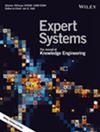Medical Data Classification Using Genetic Programming: A Systematic Literature Review
Abstract
Background
Medical data classification has always been a growing area of research. While machine learning techniques have been successfully applied in this field, the vast amount of data generated and the complexity of applications necessitate more robust and powerful methods, especially in the absence of domain expertise. Genetic programming (GP) being a flexible evolutionary approach can autonomously craft efficient classification programs merely from example data and has thus gained significant attention across various classification domains.
Content
This article presents a literature survey on the application of genetic programming to medical data classification. Reported studies are evaluated based on the examination of datasets, classifier architecture, and achieved classification accuracy. Additionally, we also discuss the strengths and weaknesses of genetic programming with other algorithms, covering aspects like classification accuracy, computational efficiency, interpretability, and resource consumption. The limitations of existing GP techniques and future directions are also presented in this study.
Conclusion
The study presented in this article indicates that GP-based classifiers perform better than other classifiers in the medical domain. To the best of our knowledge, this article is the first of its kind which discusses the application of GP explicitly in medical data classification. Through this article, we aim to enlighten the readers on key concepts of GP and encourage them to build new classifiers by exploring the potential and limitations of genetic programming.

 求助内容:
求助内容: 应助结果提醒方式:
应助结果提醒方式:


